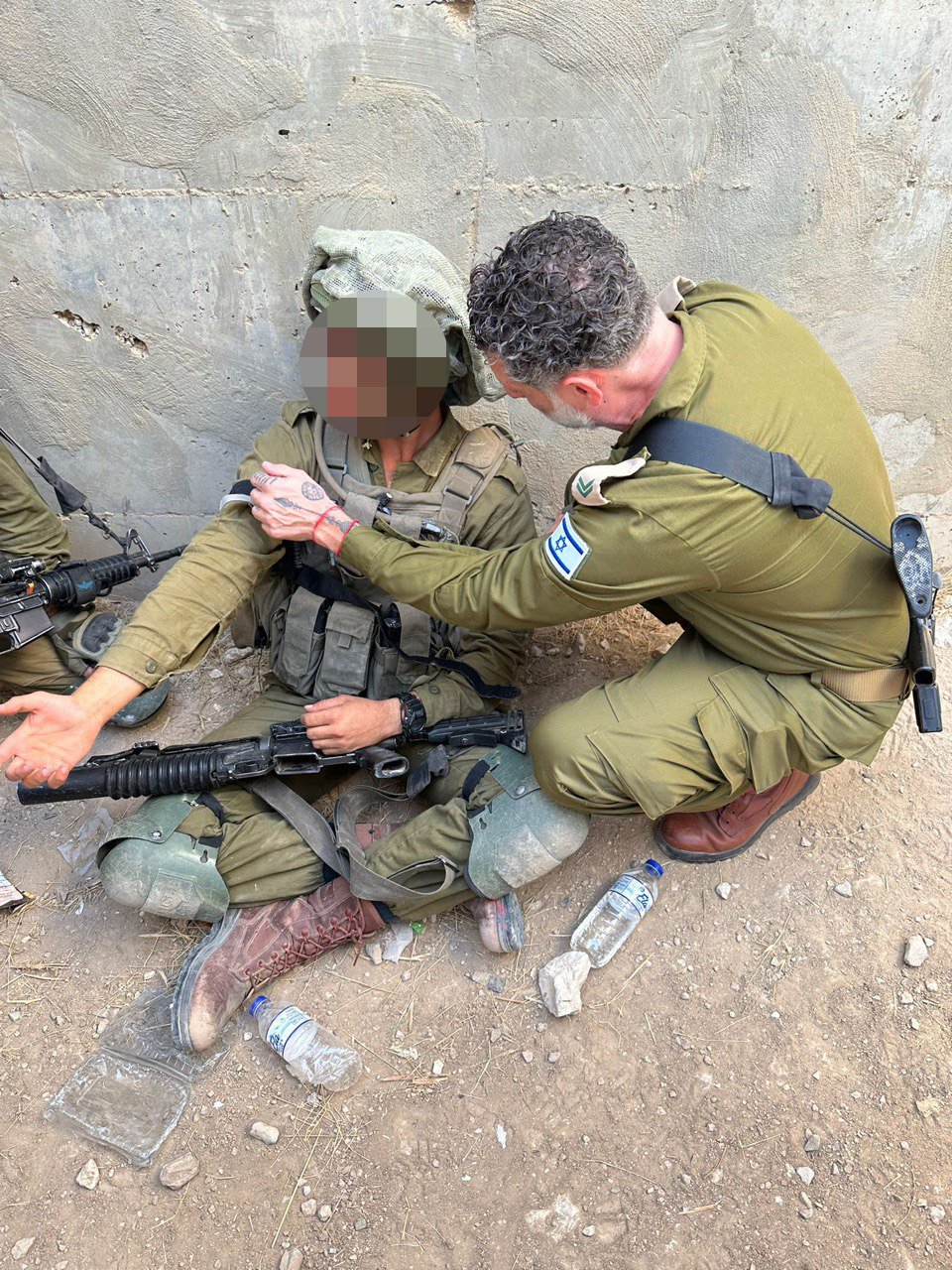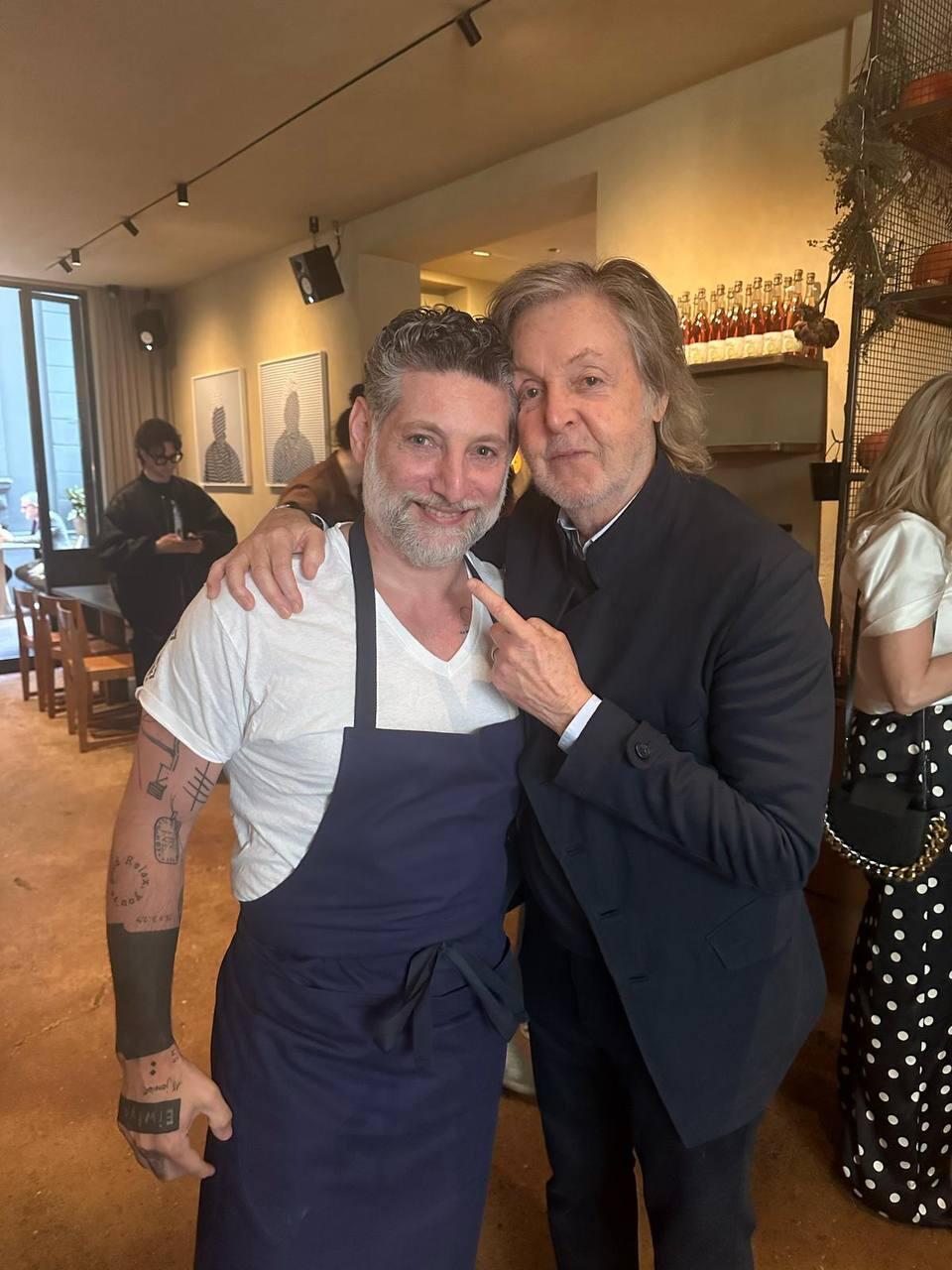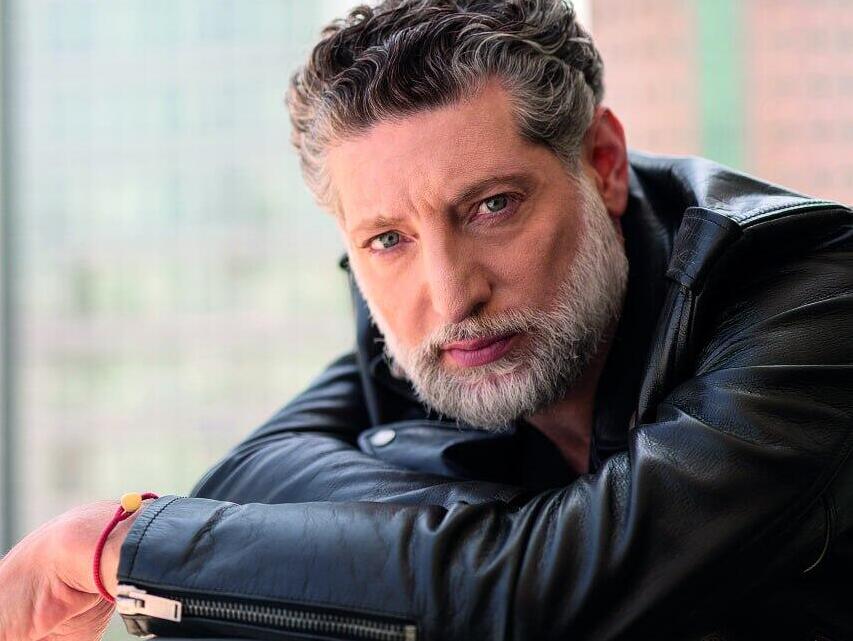Getting your Trinity Audio player ready...
Thousands of blazing kitchens did not prepare Asaf Granit for the scene he experienced in the war. He was wearing his uniform, serving as a medic and a medic trainer in reserves, two days after the war began. His team entered an area where detained Hamas terrorists were held, some of them wounded, and bleeding. He describes how he felt in those moments when he had to treat them.
"It's a very tough situation. I met the medical team treating the captured terrorists they just brought, shackled. They're wounded, and they need to be examined. Of course, there's a range of injuries, and we value human life, even if they're murderers. The situation is absurd: a 19-year-old boy needs to apply antibiotics on the wound of a terrorist who may have murdered dozens not long ago, under my guidance. How do you even explain the logic here? It's a mental and moral test for me. But you have to remind yourself that you're human and that there's also an important aspect of efficiency here. They need to be questioned, so they need to be fit. It helps to make sense of it."
On October 7, Granit was in Rome, after attending a friend's wedding. Granit decided to leave the restaurants in Europe open despite Hamas' threats to harm Israeli businesses worldwide, and he boarded a plane to volunteer for reserves, even though he's been released from service for years.
When he arrived in the south, Granit was exposed to the horrors of the massacre in the kibbutzim. "We started doing rounds with medical teams. There was still fighting at some locations, and in others, the forces focused on evacuating bodies. After all the fire and blood on the way, we stopped in a community, and it turns out that one of the medics, an 18-year-old girl, was murdered just a day before."
"When I arrived with the area commander, he saw three soldiers her age standing next to the ambulance. Usually, when girls this age meet me, they giggle, because they see a figure from television. But the horrible scene of blood, death, sirens, mortars, made it a human situation where three girls meet a celebrity. One of them suddenly said, 'I can't believe she's not here, she loves you. Suddenly the soldier realized she was talking about her friend who was murdered yesterday. We fell silent instantly."
After two months of reserves, Granit returned to Paris, to Fashion Week, this time in Michelin chef's uniform. He was invited by designer Stella McCartney, Paul McCartney's daughter, to her show as a guest of honor. "After they sat down to eat, I heard McCartney looking for me. He gets up from the table, turns around, looks for me. He grabs me by the hand, hugs me, and lifts me up. An 80-plus-year-old man. I don't understand, I'm thinking to myself, why is this beetle hugging me and how does he manage? I'm not a small guy. And then he tells me he's been a vegan for 45 years, before they knew what veganism was, and that my food is always an opportunity for something vegan. He then said that it's amazing that I make creative and tasty food and thanked me for it. I tried to remain nonchalant and tell Stella, 'Your dad just lifted me.' And she replied, 'And he's f*cking 81!'"
At the same time, Granit became a superstar in the Israeli mainstream. His next business step is opening a five-star boutique hotel in Jerusalem. "This will be one of our biggest projects, building a hotel in Jerusalem in Rehavia. Including two restaurants. The dairy restaurant will be open all day. The meat restaurant will be like Mahaneh Yehudah Market, and will include an event hall and a rooftop bar."
During these tumultuous times, Granit parted ways with his partner, Dafna Goor two months ago. "It was a painful breakup. I loved. A lot," he explained. "All the time, I'm dealing with my relationships. What's the difference between me and another guy? Everyone goes on dates and falls in love, what's wrong with that? You become cautious with women, friends, and businessmen. I pay a price for that."
You don't want to be in a place where you wonder if it's related to your publicity or money. When you become over-protective, in the end, what happens is that your heart closes. Yes, I can manage romantic, social, and professional relationships, but when your heart is closed, you manage them externally, technically, but you don't really feel," he added.




